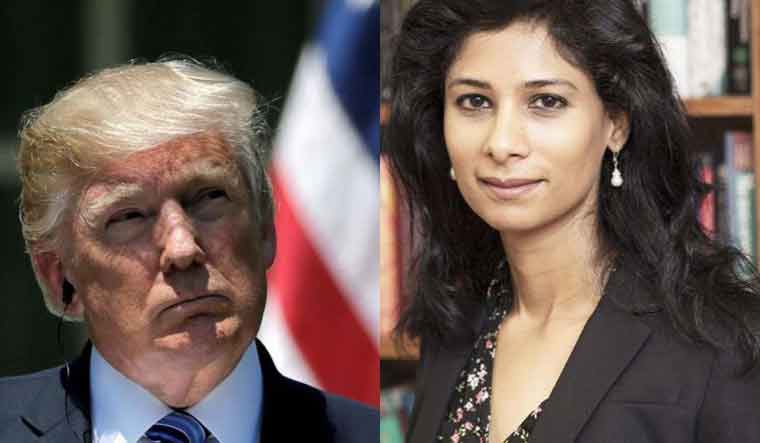The International Monetary Fund (IMF) minced no words as they criticised US President Donald Trump's tariff policies on Wednesday. In a blog titled 'Taming the Currency Hype', the IMF has said that US tariffs on China will not fix the trade deficit, and neither will weakening the US dollar through interest rate cuts.
In unusually blunt language, the IMF warned that US President Donald Trump's policy moves are counterproductive, won't achieve the desired results, and will slow the global economy. The blog, co-authored by IMF chief economist Gita Gopinath, said that higher bilateral tariffs are unlikely to reduce aggregate trade imbalances, as they mainly divert trade to other countries. Instead, tariffs "are likely to harm both domestic and global growth by sapping business confidence and investment and disrupting global supply chains, while raising costs for producers and consumers".
"One might think that the impact of higher tariffs on imports from China would be offset by the stronger dollar, because as the US currency strengthens Chinese goods should become cheaper. But in reality, as discussed in an earlier blog , US importers and consumers are bearing the burden of the tariffs. The reason: the stronger US currency has had a minimal impact thus far on the dollar prices Chinese exporters receive because of dollar invoicing," it explained.
Such policies would undo any benefit for a single country and simultaneously make all nations worse off, while also possibly violating international obligations such as those to the World Trade Organization.
Trump has been acting on impulse and unleashed a slew of trade tariffs on China, to protect the US from what he terms as "unfair trade practices". China has also imposed retaliatory tariffs, which has put global markets on the edge.


